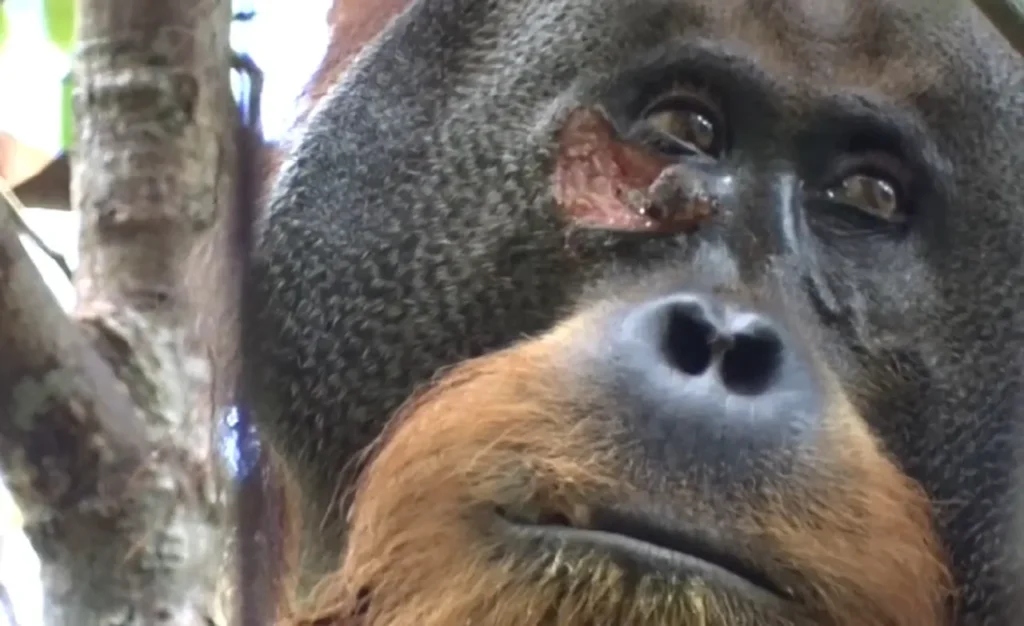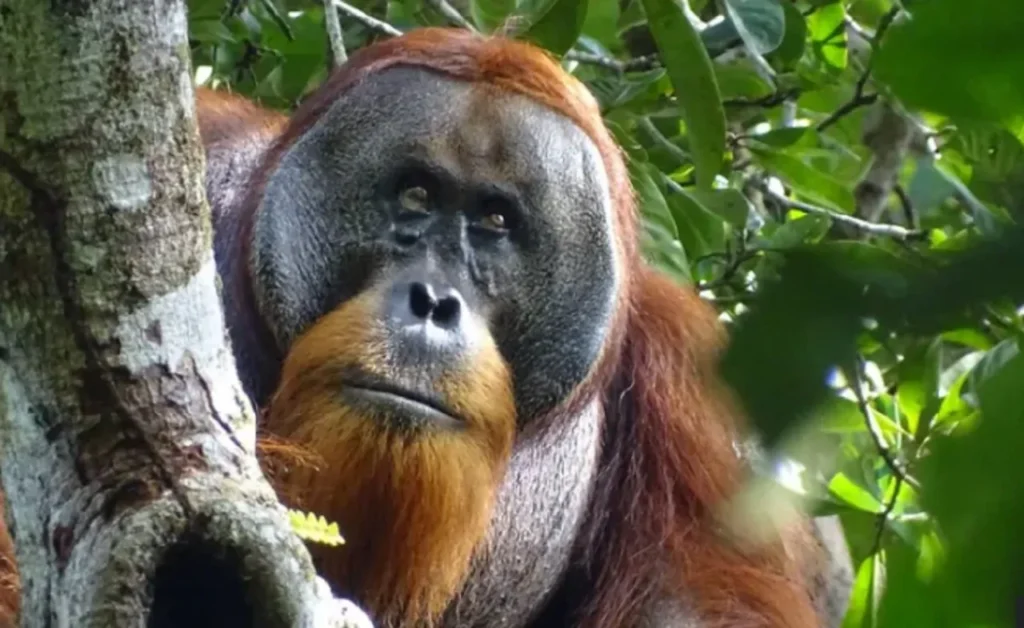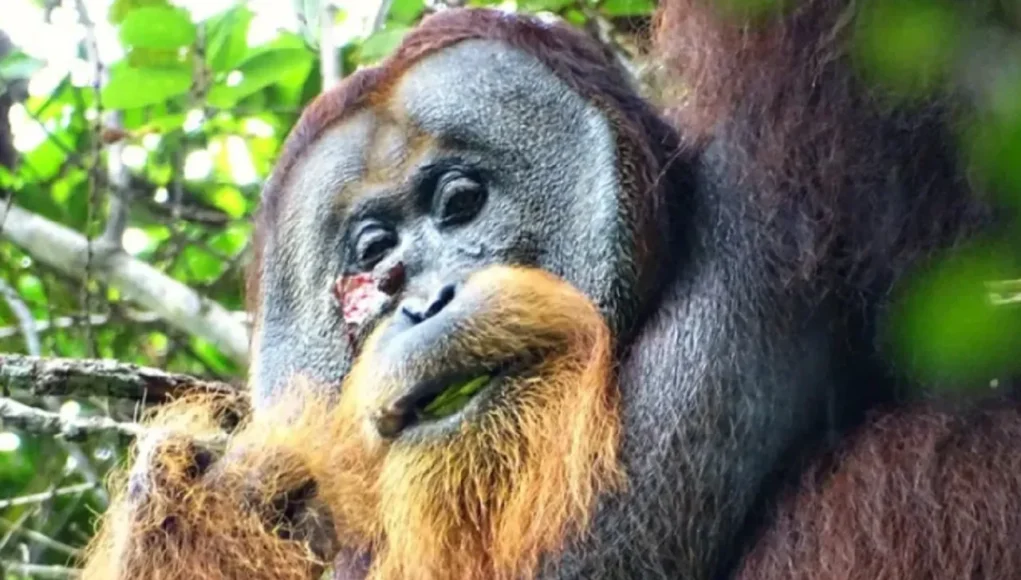Today’s incredible news: a great story comes from South Aceh, Indonesia.
A groundbreaking study published in Scientific Reports reveals a fascinating case of self-medication in Rakus, a male Sumatran orangutan. When he sustained a facial wound, likely in a tussle with other orangutans, Rakus displayed an astonishing level of intelligence and resourcefulness by using natural plant medicine to treat himself. This remarkable behavior not only showcases the exceptional capabilities of orangutans but also opens up new avenues of understanding about the medicinal knowledge of our closest relatives in the animal kingdom.

Rakus’s Healing Journey
Rakus didn’t just lick his wounds and wait for nature to take its course. Instead, he carefully selected leaves from the Fibraurea tinctoria liana—also known as Akar Kuning—and began chewing them methodically. This wasn’t a casual snack. Rakus chewed the leaves to release the plant’s medicinal juice and then spat the masticated leaves onto his wound, applying the juice directly onto the cut before covering it with the chewed foliage.
The Fibraurea tinctoria plant is renowned for its medicinal properties in Southeast Asian traditional medicine, with both analgesic and anti-inflammatory effects. This makes Rakus’s actions even more impressive because he seemed to understand the healing potential of this plant and utilized it with great precision.
Remarkable Results
In the days that followed, researchers observed Rakus carefully treating his wound with the plant’s juice. To their amazement, there were no signs of infection in the injury area. By June 30, the wound had closed up completely, leaving only a faint scar as evidence.
This systematic documentation of a great ape using a biologically active plant substance to treat a wound is a groundbreaking discovery. Rakus’s deliberate and consistent behavior highlights a previously undocumented level of self-medication in orangutans and other non-human species. It’s not just about chewing on a leaf for comfort—this is active wound care using a plant with known medicinal properties.
Implications and Significance
Rakus’s behavior raises some intriguing questions about the potential medicinal knowledge of orangutans. It also hints at the broader implications of understanding the self-healing abilities of non-human species. By expanding our comprehension of orangutan intelligence, the study opens doors to further research into the medicinal knowledge of our primate cousins.
The conservation of orangutan habitats becomes even more crucial in this context, as it ensures the preservation of their natural healing practices and plant-based remedies. Who knows what other plants and healing behaviors might be uncovered if we continue studying them in their natural environments?
Moreover, Rakus’s remarkable healing journey could have significant applications for human medicine. The analgesic and anti-inflammatory properties of Fibraurea tinctoria could inspire new treatments and deepen our understanding of natural healing practices.

Conclusion
Rakus’s story is more than just a tale of a clever orangutan patching up a wound. It’s a window into the incredible world of nature’s own pharmacy and the intelligence of one of our closest animal relatives. This groundbreaking study reveals a level of resourcefulness in Rakus that rewrites the book on orangutan intelligence.
We need more research to uncover other fascinating discoveries about the healing abilities of orangutans and other animals. Rakus has shown us that nature is full of wonders waiting to be explored and that it’s crucial to protect and respect all species.







